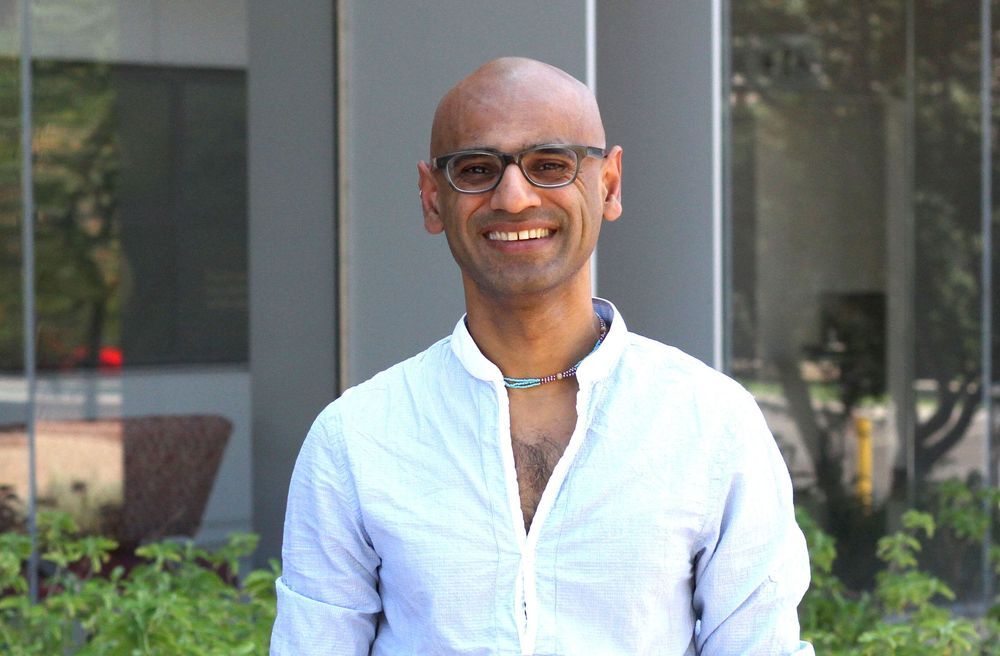Ngrave has launched what it claims is the first cryptocurrency wallet boasting EAL7-certification — one of the highest security gradings in the world.
Iran has apparently lofted its first military satellite into orbit, ending a series of setbacks for the nation’s space program.
A two-stage Qassed rocket lifted off from the Markazi Desert in central Iran on Wednesday (April 22) and successfully delivered a military reconnaissance satellite called Nour to orbit, Al-Jazeera reported. The rocket could be seen successfully launching into soace in this video from Iran’s Tasnim News Agency and PressTV.
At the highest level, Mars sample return sounds very straightforward: go to Mars, grab some rocks, and bring them back to Earth. Easy!
Easier said than done, though. While NASA has demonstrated the ability to land on Mars and travel across its surface on several missions, the challenges of gathering samples, putting them into a vehicle that launches them into Martian orbit, and then getting those samples back to Earth, increases the complexity of the endeavor exponentially more than linearly.
NASA announced its intent in August 2017 to pursue a “lean” sample return strategy in an effort to minimize the complexity, and cost, of getting samples back (see “Turning a corner on Mars,” The Space Review, August 19, 2019). Since then, NASA and the European Space Agency have said they will collaborate on a Mars Sample Return program, but the agencies have elaborated little on that overall architecture.
On March 6, the Moon Village Association unveiled a set of 15 draft Moon Village Association (MVA) Principles intended to help facilitate the peaceful settlement of the Moon by establishing best practices for the long-term sustainability of lunar and cislunar activity. The MVA Principles are now published on the MVA website and are open for public comment. The announcement by the president of the MVA, Dr. Giuseppe Reibaldi, took place during a day-long symposium on Returning to the Moon: Legal Challenges as Humanity Begins to Settle the Solar System hosted by the Global Space Law Center at Cleveland State University’s Cleveland-Marshall College of Law (see “Hard law or soft law? The debate about the future of space law”, The Space Review, April 13, 2020).
As discussed further below, all stakeholders, including members of the general public, are invited to submit their comments on the principles through the MVA website. The purpose of this article is to answer some basic questions about the nature of the MVA Principles and to provide a concise summary of the principles to acquaint readers with their scope.
What is the Moon Village Association? The concept of the “Moon Village” is a vision of peaceful global cooperation in lunar exploration and utilization. The concept contemplates a collection of international efforts that involve both governmental and non-governmental (i.e. private) entities conducting activities in a spirit of cooperation and mutual assistance. Everyone is free to contribute to humanity’s future on the Moon in accordance with their individual capabilities. The Moon Village Association (www.moonvillageassociation.org) was incorporated in Vienna in 2017 with the goal of implementing the Moon Village concept by serving as a hub of communication for stakeholders in the new international push to establish a permanent human presence on the Moon. At the core of the MVA is an extensive network of professionals and institutions from more than 40 countries.
A group of researchers has demonstrated that treatment with NMN, a precursor of NAD+, restores neurovascular coupling (NVC) in aged mice [1]. Since NVC deficiency seems to be a major factor in the age-related decline of cognitive and motor functions, this discovery presents exciting new possibilities for longevity research.
Neurovascular coupling
While the human brain is the evolutionary advantage that brought us to where we are today, operating this machine requires considerable resources. Our cerebral blood flow (CBF) accounts for 15% of cardiac output and 20% of resting total oxygen consumption, even though the brain itself comprises just 2% of body mass. CBF has to be constantly redirected to the regions of the brain that are currently active, and NVC is the mechanism in charge of this complex operation. Importantly, the CBF/cardiac output ratio decreases with age [2].
Saudi Arabia hopes to build ties to Hollywood by investing in Beverly Hills-based Live Nation, which the coronavirus has brought to its knees.
The asteroid, dubbed 1998 OR2, is predicted to measure between 1.8 km — 4.1 km in diameter. At the higher end of that estimate, it means the space rock could be five times bigger than the Burj Khalifa.
In November of 2019—likely, even earlier—a tiny entity measuring just a few hundred billionths of a meter in diameter began to tear apart human society on a global scale. Within a few months, the relentless voyager known as SARS-CoV-2 had made its way to every populated corner of the earth, leaving scientists and health authorities with too many questions and few answers.
Today, researchers are scrambling to understand where and how the novel coronavirus arose, what features account for the puzzling constellation of symptoms it can cause and how the wildfire of transmission may be brought under control. An important part of this quest will involve efforts to properly classify this emergent human pathogen and to understand how it relates to other viruses we may know more about.
In a consensus statement, Arvind Varsani, a molecular virologist with ASU’s Biodesign Center for Fundamental and Applied Microbiomics and a host of international collaborators propose a new classification system, capable of situating coronaviruses like SARS-CoV-2 within the enormous web of viruses across the planet, known as the virosphere.
For most of the 20th century, astronomers have scoured the skies for supernovae—the explosive deaths of massive stars—and their remnants in search of clues about the progenitor, the mechanisms that caused it to explode, and the heavy elements created in the process. In fact, these events create most of the cosmic elements that go on to form new stars, galaxies, and life.
Because no one can actually see a supernova up close, researchers rely on supercomputer simulations to give them insights into the physics that ignites and drives the event. Now for the first time ever, an international team of astrophysicists simulated the three-dimensional (3D) physics of superluminous supernovae—which are about a hundred times more luminous than typical supernovae. They achieved this milestone using Lawrence Berkeley National Laboratory’s (Berkeley Lab’s) CASTRO code and supercomputers at the National Energy Research Scientific Computing Center (NERSC). A paper describing their work was published in Astrophysical Journal.
Astronomers have found that these superluminous events occur when a magnetar—the rapidly spinning corpse of a massive star whose magnetic field is trillions of times stronger than Earth’s—is in the center of a young supernova. Radiation released by the magnetar is what amplifies the supernova’s luminosity. But to understand how this happens, researchers need multidimensional simulations.









